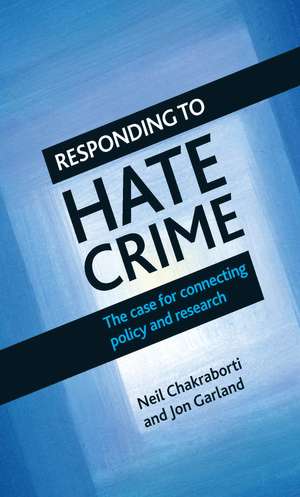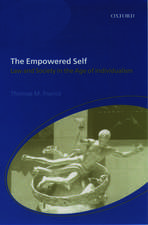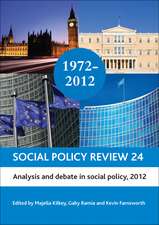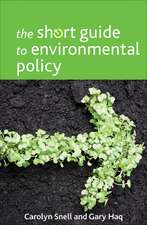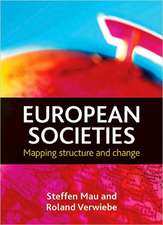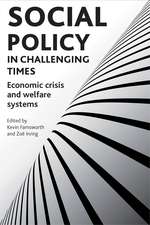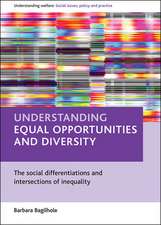Responding to Hate Crime: The Case for Connecting Policy and Research
Editat de Neil Chakraborti, Jon Garlanden Limba Engleză Paperback – 30 iun 2015
The policy makers that govern responses to hate crimes and the institutions that research those crimes have up to this point been separate: policy makers have not taken research into consideration, and researchers have conducted their studies with little reference to policies. This book bridges the gap between the two by bringing together internationally renowned hate crime experts from the domains of academia, policy making, and activism. The contributors provide new perspectives on the nature of hate crimes, their victims, and their perpetrators, exploring a range of themes, challenges, and solutions that have otherwise received little attention. The result is a collection of innovative ways of combating hate crime that combines cutting-edge research with the latest in professional innovations, while remaining accessible to a wide audience.
| Toate formatele și edițiile | Preț | Express |
|---|---|---|
| Paperback (1) | 215.97 lei 3-5 săpt. | +18.30 lei 7-13 zile |
| Bristol University Press – 30 iun 2015 | 215.97 lei 3-5 săpt. | +18.30 lei 7-13 zile |
| Hardback (1) | 833.41 lei 6-8 săpt. | |
| Bristol University Press – 20 mai 2014 | 833.41 lei 6-8 săpt. |
Preț: 215.97 lei
Nou
Puncte Express: 324
Preț estimativ în valută:
41.32€ • 43.38$ • 34.30£
41.32€ • 43.38$ • 34.30£
Carte disponibilă
Livrare economică 20 martie-03 aprilie
Livrare express 06-12 martie pentru 28.29 lei
Preluare comenzi: 021 569.72.76
Specificații
ISBN-13: 9781447308775
ISBN-10: 1447308778
Pagini: 224
Dimensiuni: 152 x 229 x 20 mm
Greutate: 0.48 kg
Editura: Bristol University Press
Colecția Policy Press
ISBN-10: 1447308778
Pagini: 224
Dimensiuni: 152 x 229 x 20 mm
Greutate: 0.48 kg
Editura: Bristol University Press
Colecția Policy Press
Notă biografică
Neil Chakraborti is a reader in criminology at the University of Leicester. He is coauthor of Hate Crime. Jon Garland is a reader in criminology in the Department of Sociology at the University of Surrey.
Cuprins
Introduction and Overview - Neil Chakraborti
Part One: Working Together: Developing Shared PerspectivesThe adventures of an accidental academic in ‘policy-land’: a personal reflection on bridging academia, policing and government in a hate crime context - Nathan Hall
Academia from a practitioner’s perspective: a reflection on the changes in the relationship between academia, policing and government in a hate crime context - Paul Giannasi
Reshaping hate crime policy and practice: lessons from a grassroots campaign - an interview with Sylvia Lancaster, founder of the Sophie Lancaster Foundation
Not getting away with it: linking sex work and hate crime in Merseyside - Rosie Campbell
Evidencing the case for hate crime - Joanna Perry
Part Two: Researching Key Issues: Emerging Themes and Challenges
Working with lesbian, gay, bisexual and transgender communities to shape hate crime policy - Marian Duggan
Using a ‘layers of influence’ model to understand the interaction of research, policy and practice in relation to disablist hate crime - Chih Hoong Sin
Responding to the needs of victims of Islamophobia - Irene Zempi
Controlling the new far right on the streets: policing the English Defence League in policy and praxis - James Treadwell
Developing themes on young people, everyday multiculturalism and hate crime - Stevie-Jade Hardy
Hate crime against students: recent developments in research, policy and practice - Lucy Michael
We need to talk about women: examining the place of gender in hate crime policy - Hannah Mason-Bish
Part Three: Challenging Prejudice: Combating Hate Offending
Courage in the Face of Hate: a curricular resource for confronting anti-LGBTQ violence - Barbara Perry and D. Ryan Dyck
Policing prejudice motivated crime: a research case study - Gail Mason, Jude McCulloch and JaneMaree Maher
Policing hate against Gypsies and Travellers: dealing with the dark side - Zoë James
Understanding how 'hate' hurts: a case study of working with offenders and potential offenders - Paul Iganski, with Karen Ainsworth, Laura Geraghty, Spyridoula Lagou, and Nafysa Patel
Restorative approaches to working with hate crime offenders - Mark Austin Walters
Conclusions - Jon Garland
Recenzii
“At a time of heightened focus on ‘hate crimes’, renowned experts Chakraborti and Garland bring together an international array of commentators to make a persuasive case for restorative approaches to hate crime. The strength of this edited collection is found in the synergy between scholarship and policy.”
“Chakraborti and Garland are to be congratulated for bringing together this exceptionally important, comprehensive, and stimulating collection of essays exploring the hate crime scholarship-policy nexus. Responding to Hate Crime is a text of remarkable range and sophistication; it is both timely and forward-thinking. The tragic consequences of prejudice and bigotry are sadly all too familiar to all of us, but the small ‘signs of progress’ noted by the editors are in no small part due to their own pioneering work in this field.”
